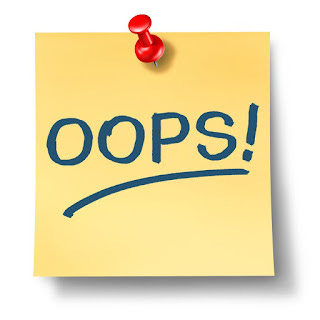When Gedolim Err
Rabbi Yitzchak Adlerstein has just published a fascinating essay, "Who Deserves to be Our Hero?" in which he argues that if we seize upon every error in order to disqualify a rabbinic leader, there will be no more Torah heroes left:
"Heroes need not be perfect. Gedolim need not be perfect. They never were, and they never will be. A person who demands never to find fault in his or her mentor will never have a meaningful mentor."

Rabbi Adlerstein mentions this in the context of discussing reactions to an earlier essay of his which denounced the opposition to vaccinations. The elephant in the room is a leading charedi Gadol B'Torah who stands at the helm of the anti-vaxxers. Rabbi Adlerstein bemoans how the just and necessary opposition to his support of the anti-vaxxers leads people to disregard his honor and credibility entirely.
There's an additional point that should be made here. Many people feel that anti-vaxxers should be called out as evil murderers. Now, I believe in the importance of vaccinations as much as anyone. My post on "The Lakewood Suicide Squad," the all-time most read post on this website (30,000 views), I called out (by name) the small group of rabbis who support the anti-vaxxers. Nevertheless, as I stressed in a follow-up post, "These Rabbis Are Not Murderers," I believe that it is wrong to call these people "murderers" or "evil." They are merely sincerely, tragically mistaken. They are appalled by sickness and death as much as anyone - they simply believe that vaccines contribute to these rather than solving them.
Having said that, there is something in Rabbi Adlerstein's essay which I think should be qualified. He writes that "There are fatal flaws, but not every flaw is fatal. A talmid chacham who shows shallow thinking in one area should not be consulted in that area. It does not follow – and experience shows otherwise – that great people can be insightful and incisive in some areas, and not in others." Now, it is certainly true that a mistake in one topic does not necessarily disqualify someone's opinion in every topic. However, certain types of mistake reveal certain types of character flaw or worldview, which are likely to have ramifications in other areas.
The case of vaccinations is a perfect example. Someone who distrusts the entire modern medical enterprise either suffers from a conspiratorial worldview, or an anti-scientific mindset. This is very likely to affect their views in certain other areas, and vice-versa. That's why it's no surprise when advocates of alternative medicine turn out to be anti-vaxxers.
This is in fact one of the most important lessons which emerged from the notorious controversy over my books. The fact that three dozen leading charedi rabbonim considered it false and heretical to believe that there was an age of dinosaurs, or that there's no such thing as salamanders that grow from fire, was not just a narrow dispute regarding peshat in a few pesukim and a few lines of Gemara. Rather, it reflected a completely different worldview - the non-rationalist worldview - with ramifications for everything from brain-death to shiluach ha-kein to IDF service to marital intimacy to kollel vs. working. It led hundreds and possibly thousands of people to recognize that they needed to be in a different kind of community with a different kind of rabbinic leadership.
There are mistakes which are just mistakes. There are mistakes that are indicative of serious personal flaws. And there are mistakes which are neither of the above, but which reveal a different worldview. It's important to recognize these as such.


